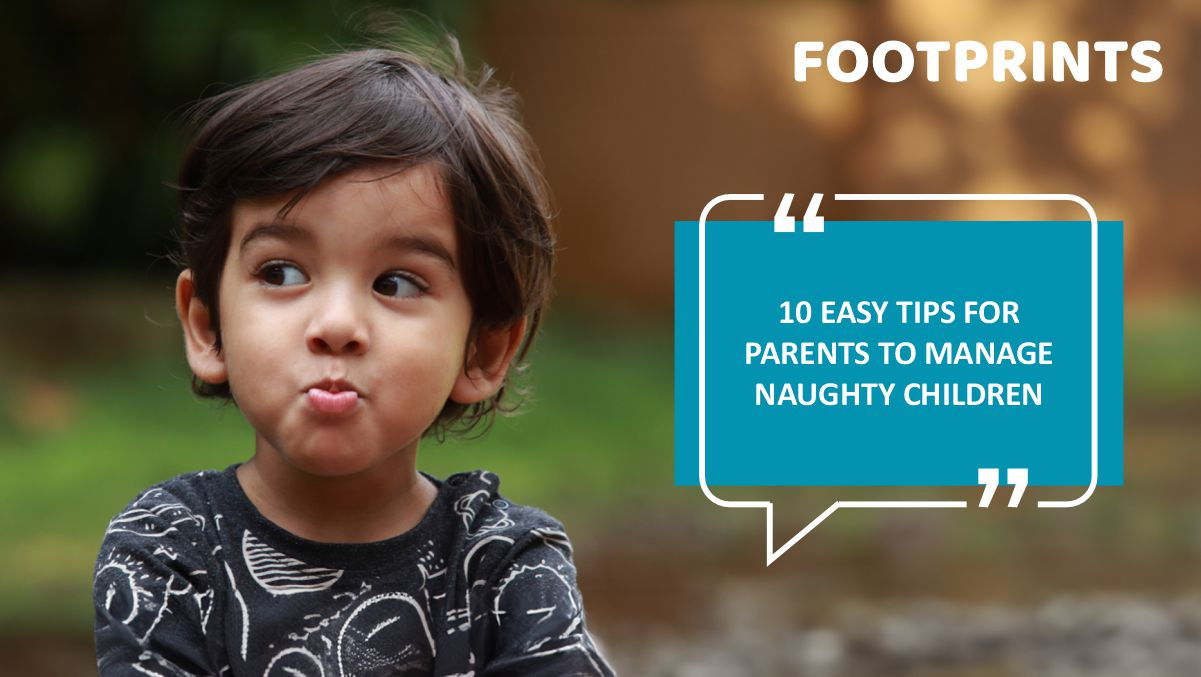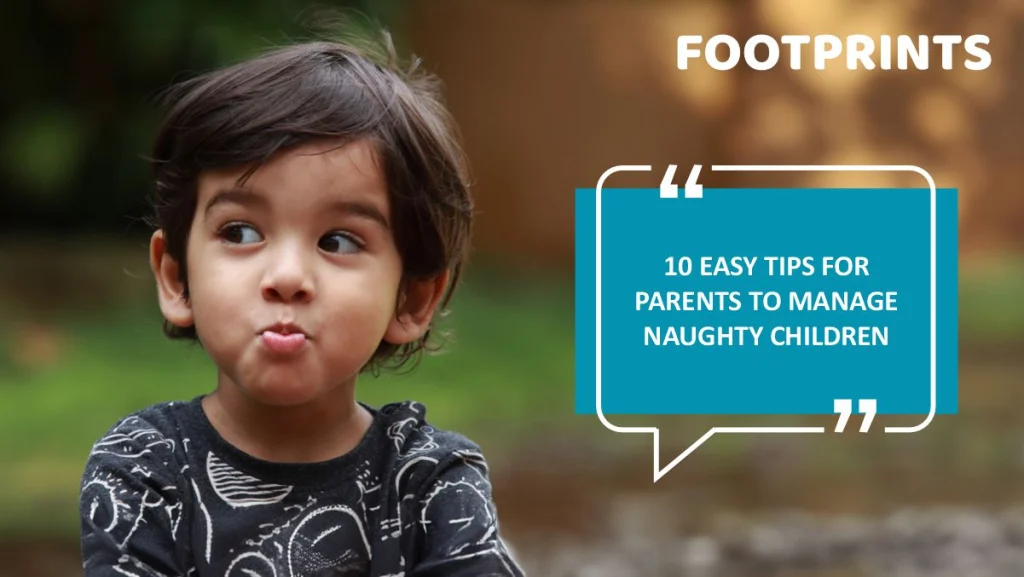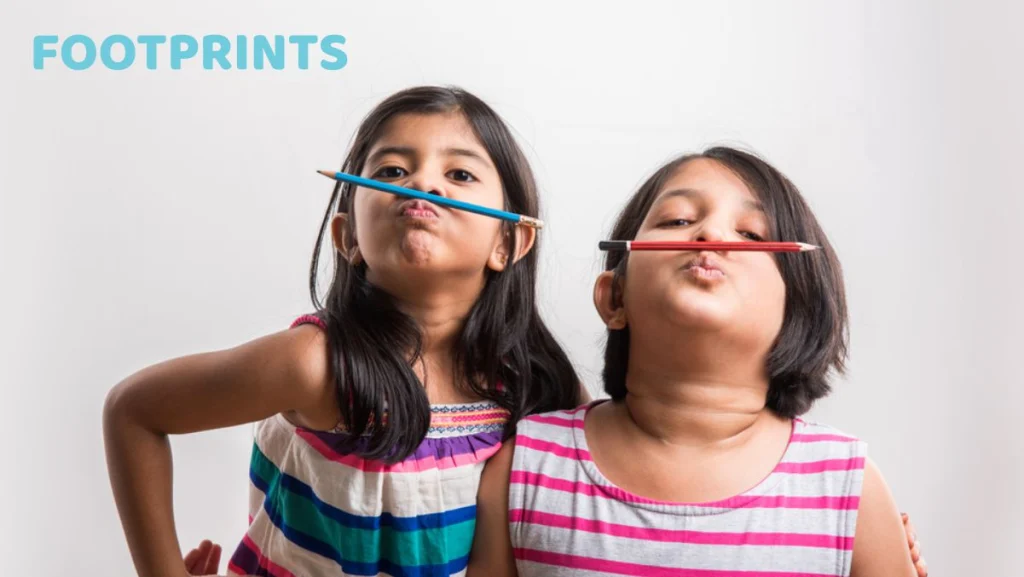

No parent is free from the behavioural challenges of their children. Issues like backtalk, constant interrupting, or boundary testing are common. While outright it may be tired parenting, with the right discipline methods, even the feistiest of children can learn self-regulation, respect, and empathy.
This piece weaves out 10 simple everyday discipline strategies for you to manage your little ones without the need to yell, offer bribes, or constantly show frustration. With patience and a clear approach, you will see results which, in turn, will support your child’s growth. Also, at no point do you have to sacrifice your own peace of mind.
How to Manage Naughty Children Effectively?
Managing behaviour is not about control at all; it is about discipline and instruction. Each interaction is an opportunity to show your child how to deal with big feelings, to follow rules, and to treat others with kindness.
When you are dealing with a misbehaving child from a place of empathy and structure, you foster an environment that is ripe for learning and cooperation. After all, we aim for continuous progress, not perfection.
10 Good Parenting Tips to Handle a Naughty Child without Losing It.
1. For starters, respond with empathy.
Action is a form of communication. In each tantrum and act of defiance, there is a need that is going unmet. Start by acknowledging feelings.
“You got upset when we left the park. That is hard…”
This tells your child that you are listening, even if you don’t agree with the action.
2. Set boundaries early and clearly.
Children do better with structure. Set and stick to your rules. You could say:
“In our home, we use quiet voices.”
Presenting rules in a positive light sets a model for your child.
3. Steer clear of power struggles.
In some cases, it is best to step back. You don’t have to win every time. Offer simple choices like:
“Here is your choice, and it’s up to you. You may brush your teeth now or after we read that book. What would you prefer to do first?”
Also, it’s up to you: “What would you prefer to do first, brush your teeth or read the book?”
It gives the child the privilege of choice and a sense of control over their actions rather than being directed by the parent in everything they do. It helps avoid unnecessary conflict.
4. Stay true to the rules.
When rules change routinely, the little minds tend to grow in confusion. The aftermath is an increased display of misbehaviour and dissent.
If your child throws toys and you react with no response one day and punishment the next, the message is lost. For effective child discipline, use the same approach in words and actions.

5. Use positive reinforcement.
Catch it when they do well. It is easy to notice the negative, but what a difference praise makes.
Saying “I saw that you waited for your turn, thank you!” sets an example, instead of using punishment. Present “I notice that you did this”- it’s also a way to reinforce the good in behaviour and at the same time model it out there.
6. Look out for triggers.
Is your child misbehaving post-screen time? Or at the breakfast table?
Identifying trends helps you to head off issues before they arise. Also, at times, what we perceive as defiance may, in fact, be a result of fatigue, hunger, or overstimulation.
7. Establish a set routine.
Children do well with routine; it provides them a sense of control and stability.
Try out visual timers or a daily routine for your child. When they know what to expect, they feel more secure and have fewer behavioural issues.
8. Stay level-headed during corrections.
Shouting may get results, but very rarely sets the right example.
Speak in a soft, steady voice. Go to their height. A peaceful and measured approach works best and also sets an example of emotional control for your child.
9. Do not put them in boxes.
Do not apply labels like “bad” or “naughty” to your child. They stick. Instead, say:
“Spilling out your feelings isn’t healthy. We should find a different way.”
Correct the behaviour, not their character.
10. Let experience speak.
If you have a child who won’t wear shoes outside, they may feel cold. That lesson is much more practical than a lecture.
These everyday learning experiences help children see the results of their actions— a key element of child discipline.

FAQs About Managing Naughty Children
Q: What is the best approach to discipline which does not include punishment?
A: Use peace-based correction, natural consequences, and consistent boundaries. Focus on teaching rather than punishing.
Q: Why has my child begun to act out?
A: Identify issues in emotion, environment, or development, which may include stress, big home changes, or growth spurts.
Q: How do I know when I am being too hard or too easy?
A: If your child is afraid of you or doesn’t look up to you, it may be time for a change. Good discipline is that which is at once firm and fair.
Q: Can naughty behaviour be a phase?
A: Yes, it is true that we see many behavioural stages related to age. Also, note that what you do as a parent plays a role in how your child learns and grows out of things.
Quick Guide to Parenting for Dealing with Naughty Behaviour:
- Stay calm and present
- Use firm, kind boundaries
- Avoid shouting or threats
- Offer choices where possible
- Acknowledge feelings
- Stick to daily routines
- Praise effort, not just outcomes
- Let consequences teach
- Avoid labelling behaviour as identity
- Reflect and adapt when needed
Conclusion
Dealing with a badly behaved child is not about toughness; it is about clarity, kindness, and consistency. True discipline comes from connection, not control. When you take the time to understand what your child is going through and respond with intent, you are doing more than just correcting behaviour-you are teaching life skills.
The path will not always be easy. But each blowout, each tough moment, is a chance to guide instead of punish. When you put long-term growth over short-term compliance, you build a deeper connection and a more emotionally robust child.
At Footprints Playschool, we know that behaviour is a part of the learning process, which is why we at home and in school support not only academic growth, but also emotional skills, empathy, and structure, which in turn helps families and children grow together in a respectful and caring environment.
Usman is a seasoned Performance Marketing Professional and content writer with over 8 years of experience in the education industry. With a passion for driving results and creating compelling narratives, Usman specializes in crafting data-driven marketing strategies and insightful content that resonates with educational institutions and their audiences. His expertise in performance marketing, combined with his in-depth understanding of the education sector, allows him to bridge the gap between marketing initiatives and student engagement effectively. Whether through targeted campaigns or educational content, Usman helps brands enhance their online presence and achieve measurable growth.

